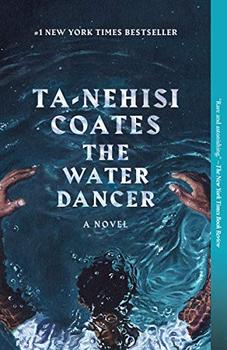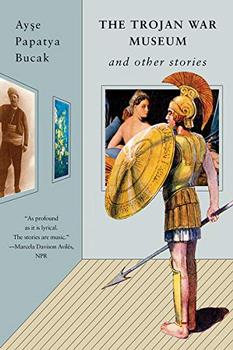Summary | Excerpt | Reading Guide | Reviews | Beyond the book | Read-Alikes | Genres & Themes | Author Bio

With characters ranging from everyday Americans to Jean-Michel Basquiat to Nat Turner, American Histories is a journey through time, experience, and the soul of our country.
In this singular collection, John Edgar Wideman, the acclaimed author of Writing to Save a Life, blends the personal, historical, and political to invent complex, charged stories about love, death, struggle, and what we owe each other.
"JB & FD" reimagines conversations between John Brown, the antislavery crusader who famously raided Harper's Ferry, Virginia, and Frederick Douglass, the abolitionist and orator, conversations that belie the myth of race and produce a fantastical, ethically rich correspondence that spans years and ideologies.
"Maps and Ledgers" eavesdrops on a brother and sister today as they ponder their father's killing of another man.
"Williamsburg Bridge" sits inside a man sitting on a bridge who contemplates his life before he decides to jump.
"My Dead" is a story about how the already-departed demand more time, more space in the lives of those who survive them.
Navigating an extraordinary range of subject and tone, Wideman challenges the boundaries of traditional forms, and delivers unforgettable, immersive narratives that touch the very core of what it means to be alive. An extended meditation on family, history, and loss, American Histories weaves together historical fact, philosophical wisdom, and deeply personal vignettes. More than the sum of its parts, this is Wideman at his best — emotionally precise and intellectually stimulating — an extraordinary collection by a master.
In American Histories, a collection of 21 short stories, John Edgar Wideman draws America's present and its divisive racial history as the direct consequence of a political and economic system that depends on man's inhumanity to fellow human beings. Wideman refers to this system as "empire," a word fraught with connotations of imperialism and slavery. "We wait and wait for the moment to arrive," he writes, "Wait for the time to celebrate. Time to love. We understand empire a chimera, a bad idea. Same bad idea over and over again. Empire dead. Long live empire." The collection is an impassioned condemnation of an empire that thrives on inequality and injustice. This condemnation is evident in Wideman's rhetoric, but also in his nuanced and empathetic explorations of his characters...continued
Full Review
(602 words)
This review is available to non-members for a limited time. For full access,
become a member today.
(Reviewed by Lisa Butts).
One of Wideman's most vivid stories is centered around the confession of Nat Turner, an enslaved Virginia man who organized a revolt in 1831, involving upwards of 50 other slaves. The rebels killed 51 people (mostly slave owners and their families). The rebellion began in the late hours of August 21 when Turner and his fellow slaves murdered their master, Benjamin Travis and his family. They then fanned out across the countryside, killing any white people they encountered. They marched to Jerusalem, Virginia where they hoped to take control of an armory, but the authorities had by then gotten word of the rebellion and it was quickly stanched. Turner and 16 of his co-conspirators hid out for roughly six weeks, intermittently clashing with ...
This "beyond the book" feature is available to non-members for a limited time. Join today for full access.

If you liked American Histories, try these:

by Ta-Nehisi Coates
Published 2020
In his boldly imagined first novel, Ta-Nehisi Coates, the National Book Award–winning author of Between the World and Me, brings home the most intimate evil of enslavement: the cleaving and separation of families.

by Ayse Papatya Bucak
Published 2020
A debut story collection of spectacular imaginative range and lyricism from a Pushcart Prize–winning author.
Our wisdom comes from our experience, and our experience comes from our foolishness
Click Here to find out who said this, as well as discovering other famous literary quotes!